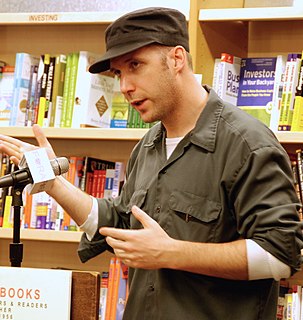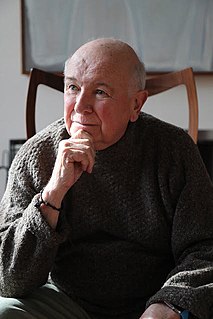A Quote by Martin Landau
A good director creates a playground for actors, and lets them go. The trick for a good director is in casting properly, and creating the playroom, and then they'll get stuff that they don't expect, and can't even direct. All the audience wants to believe is that whatever is happening, it is happening for the first time. They want to see the people within the work exchanging dialogue and action in that moment. There are not a lot of actors that can do that.
Related Quotes
Any good director creates a playground. That's what they do. They hire the right actor, open the door and let them play because stuff will happen, right then and there. The audience wants to believe that what's going on is happening for the first time, ever. That's what acting is. That's what good scene writing is.
If the audience gets everything, if they see the photography and notice that it is good, then the story goes out the window, but if you become involved with the lives of the actors and forget that you are seeing mechanical devices on a huge screen - forget the make-believe - this is the job of the director to involve the audience with the actors.
You can give the greatest performance possible, but if you don't have a director who's pointing the camera in the right direction and an editor who's editing it properly, it doesn't matter what you do. The director and the editor are the most important people. Not the actors. Sometimes the writer is important. But if you don't have a good director, you can't have a good production.
In live-action, writing, production and editing happen in discrete stages. In animation, they overlap - happening simultaneously. This allows a real dialogue to occur between the writer, the director, the actors and the editor, and it makes the writing process a lot more collaborative and a lot less lonely.
In live-action, writing, production, and editing happen in discrete stages. In animation, they overlap - happening simultaneously. This allows a real dialogue to occur between the writer, the director, the actors, and the editor, and it makes the writing process a lot more collaborative and a lot less lonely.
I aspire to be an instrument of the director. I'm happiest like that. The stronger the director, the more I'm willing to give them. It's not just about admiration for their films, it's how they deal with you, and whether they get you or the way you work. If they don't, you better adjust your way of working to suit them. I want to work with people who are good at what they do, and people who are passionate. As you get older, you suffer fools less easily. That's why there's all those cranky character actors. I'm an exception. I'm a sweetheart.
Actors, I think, are all the same. Both Korean actors and American actors are all very sensitive people, and they are all curious to know what the director thinks of them and how they are evaluated, and they try to satisfy the director. And they like it if you listen carefully to their opinions and accept them.
You're in a movie, so you have to think about how something plays. It's not like you're thinking about how an audience is going to react. You're trying to present the story. You're trying to illuminate the lives of these people in the story. So I'm thinking about how my behavior as this character best illuminates what's going on with them in this moment in time. I always say it's sort of the director's job. People think that the directors direct actors. No. Really, what the director's doing is directing the audience's eye through the film.
A lot of the stuff that's happening now, I can trace back to 'Death of a Salesman.' Francine Maisler, the casting director, saw 'Death of a Salesman' and called me in for 'Unbroken.' The casting director of 'Normal Heart' had seen 'Salesman' too. I look back on it now, and it's like one thing led to another; it was a chain reaction.
With a director it's all about the work; I'd work with a great director over - you know, I'm not the kind of actor who that doesn't go, 'I want to play this role.' It's more like, 'I want to work with this director,' regardless of what the role is because if it's a good director, you'll probably find a good role because it's a decent film. But a mediocre director will always make a mediocre movie.
Work with good directors. Without them your play is doomed. At the time of my first play, I thought a good director was someone who liked my play. I was rudely awakened from that fantasy when he directed it as if he loathed it. . . . Work with good actors. A good actor hears the way you (and no one else) write. A good actor makes rewrites easy. A good actor tells you things about your play you didn't know.
I just think there are a lot of celebrities who don't feel that they have a voice. A lot of actors come from a place of fear, and that's just a general statement about actors. You're terrified the casting director won't like you, you're terrified the producer won't like you, you're terrified the director won't like you, and on and on.

































